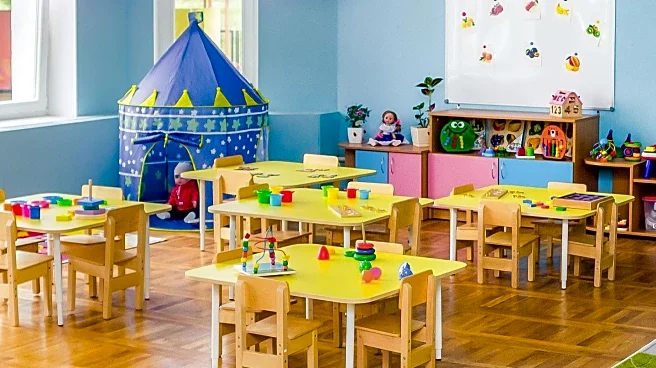What's Happening?
A German preschool has introduced a controversial pedagogical approach known as 'risky play,' which includes activities such as lighting matches and using real tools. This method aims to teach children
to test their limits and learn safety skills firsthand. The approach contrasts sharply with American parenting norms, where such activities might be considered reckless. The preschool's curriculum includes detailed safety instructions, allowing children to explore their capabilities under supervision. This method has sparked discussions among American parents, particularly those living abroad, about the balance between safety and independence in child-rearing.
Why It's Important?
The introduction of risky play in educational settings challenges traditional American views on child safety and independence. It raises questions about the effectiveness of overprotective parenting and the potential benefits of allowing children to experience controlled risks. This approach could influence future educational practices and parenting styles in the U.S., promoting a shift towards fostering self-confidence and decision-making skills in children. However, it also poses ethical and legal considerations, as similar practices might face legal challenges in the U.S. due to stricter safety regulations.
Beyond the Headlines
The concept of risky play highlights cultural differences in parenting and education between Germany and the U.S. It suggests a broader conversation about how different societies perceive childhood development and the role of risk in learning. This approach may lead to long-term shifts in educational philosophies, encouraging a reevaluation of how children are taught to handle real-world challenges.









